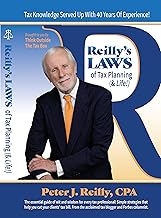Originally Published on forbes.com on July 2nd,2011
______________________________________
THOMAS MORE LAW CENTER v. OBAMA, Cite as 108 AFTR 2d 2011-XXXX
This is barely on topic for me, but I posted on the original case back in October. Mainly I can’t resist the title. Things didn’t work out so well for Thomas More when he took on Henry VIII, so we wonder if he’ll keep his head as he takes on another head of state. Several individuals with the support of the Center are challenging the provision of the Affordable HealthCare Act that will impose a tax penalty on people who fail to purchase health insurance.
Now that requirement doesn’t kick in until 2014, so there had to be a pretty tedious argument about whether there should be an argument. That is whether these people had “standing”. I don’t have a lot of patience with this lawyerly stuff, but I suppose that the government had something of a point when it argued that these people were getting prematurely excited. 2014 isn’t for a while and there is a decent chance that the law will change by then. Or if we are really lucky, you’ll die or move out of the country. Then to really complicate things one of them broke down and bought health insurance. The Court indicated though that it would be better to have the argument sooner rather than later:
In view of the probability, indeed virtual certainty, that the minimum coverage provision will apply to the plaintiffs on January 1, 2014, no function of standing law is advanced by requiring plaintiffs to wait until six months or one year before the effective date to file this lawsuit. There is no reason to think that plaintiffs’ situation will change. And there is no reason to think the law will change. By permitting this lawsuit to be filed three and one-half years before the effective date, as opposed to one year before the effective date, the only thing that changes is that all three layers of the federal judiciary will be able to reach considered merits decisions, as opposed to rushed interim (e.g., stay) decisions, before the law takes effect. The former is certainly preferable to the latter, at least in the current setting of this case.
Even the guy who bought insurance was going to be forced to maintain it after 2014. So everybody is left standing.
Once they decided the subject was worth discussing, they had to go on for a while to come to a conclusion. It basically turns on the Commerce Clause of the Constitution. The argument against the insurance requirement is that it is hard to see how somebody is engaging in interstate commerce by not doing something, like not buying health insurance. The requirement to buy health insurance is, however, an essential component of the whole plan, which does affect interstate commerce:
By regulating the practice of self-insuring for the cost of health care delivery, the minimum coverage provision is facially constitutional under the Commerce Clause for two independent reasons. First, the provision regulates economic activity that Congress had a rational basis to believe has substantial effects on interstate commerce. In addition, Congress had a rational basis to believe that the provision was essential to its larger economic scheme reforming the interstate markets in health care and health insurance.
The other reason that I can’t resist writing about this case is that it let’s me use one of my favorite quotes. As we observe the mental machinations in this litigation, we can be heartened by the words that Robert Bolt wrote for Thomas More in A Man For All Seasons:
God made the angels to show Him splendor, as He made animals for innocence and plants for their simplicity. But Man He made to serve Him wittily, in the tangle of his mind.































































































